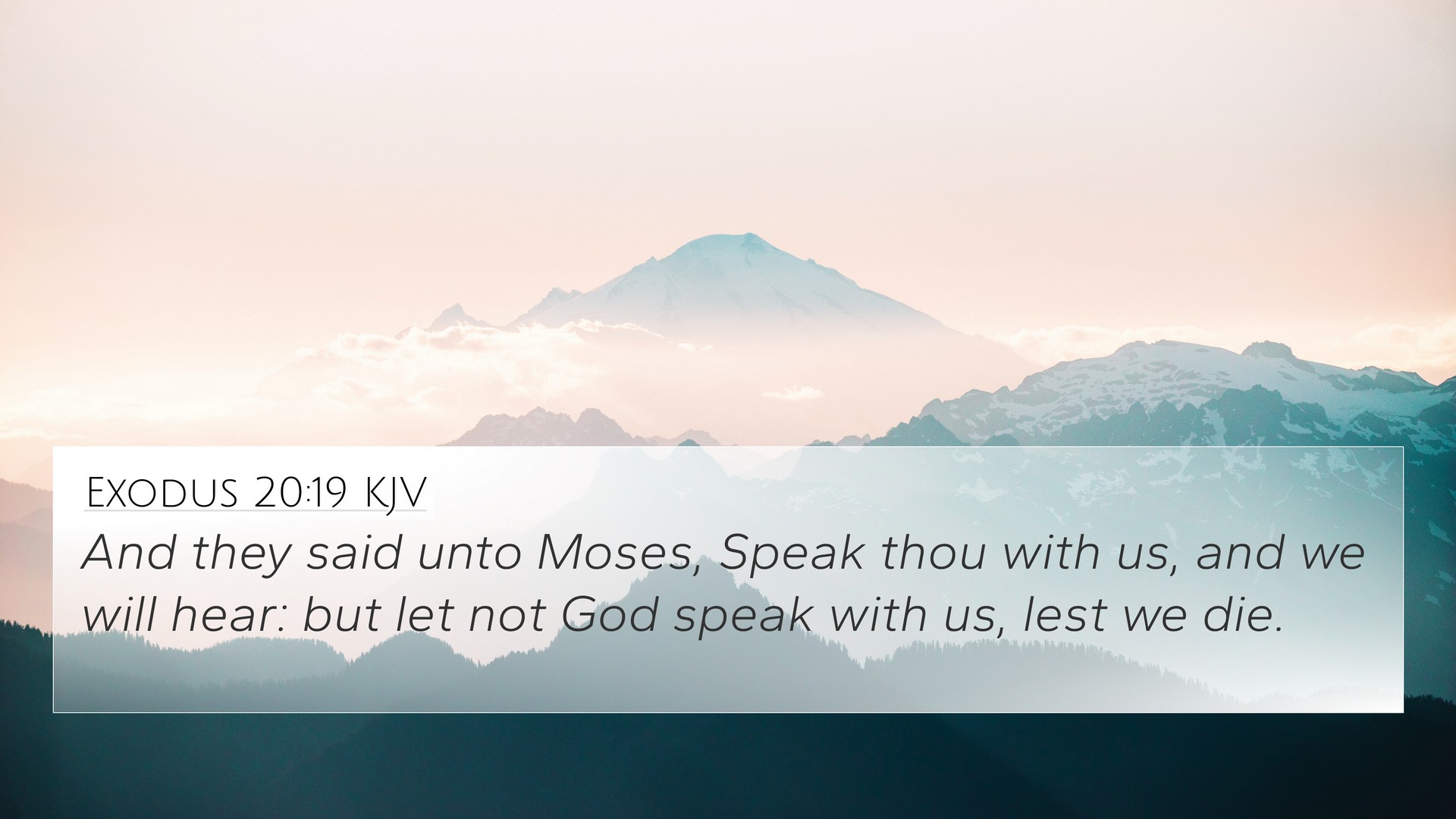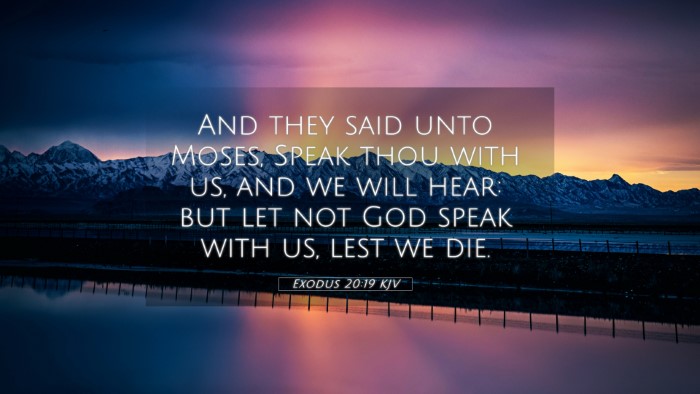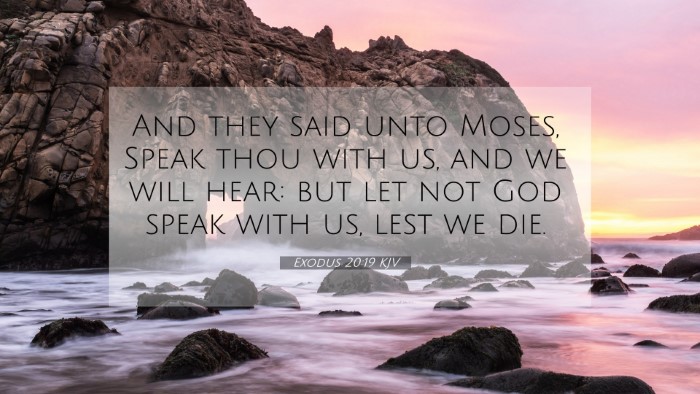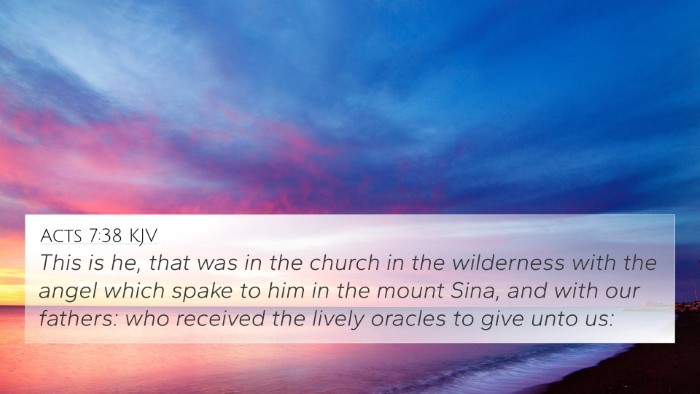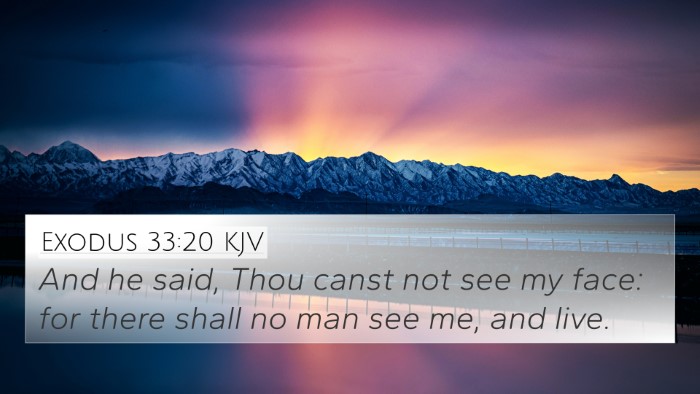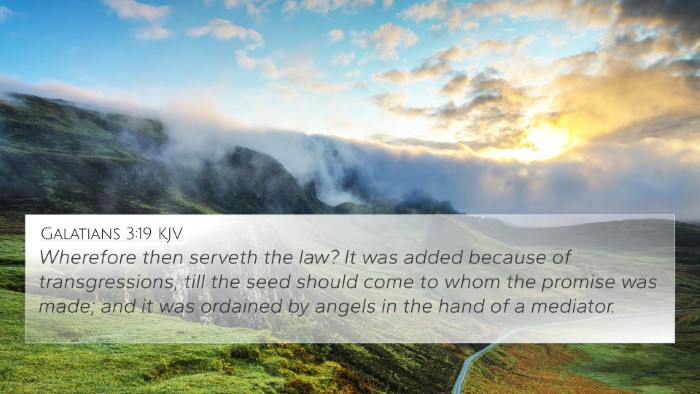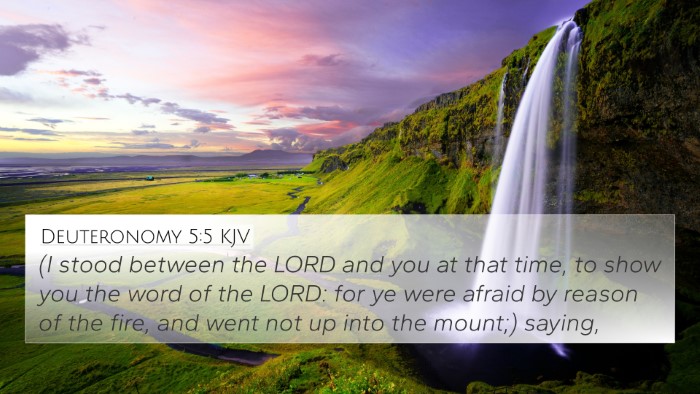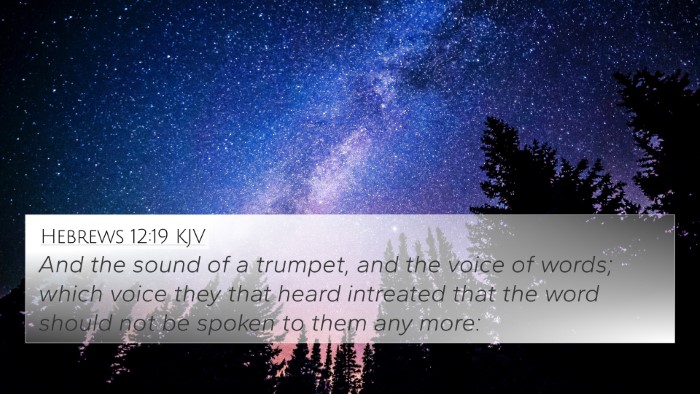Understanding Exodus 20:19
Exodus 20:19 states: "And they said unto Moses, Speak thou with us, and we will hear: but let not God speak with us, lest we die." This verse encapsulates the fear and reverence the Israelites felt towards the presence of God. Below is a detailed analysis of its meaning, thematic connections, and relevant cross-references.
Verse Meaning and Insights
This pivotal verse occurs during the giving of the Ten Commandments, where the people of Israel, having witnessed God's power and holiness on Mount Sinai, express their fear of direct communication with the Almighty.
Commentary Insights:
-
Matthew Henry highlights the significance of their request for Moses to mediate between them and God. This reflects a human tendency to be intimidated by divine holiness and the need for a mediator to approach God.
-
Albert Barnes points out that this verse signifies the people's acknowledgment of their sinfulness and unworthiness to stand in the presence of a holy God. Their desire for Moses to speak for them shows their realization of the gulf between them and the divine.
-
Adam Clarke elaborates on the implications of the people's plea, indicating it is a recognition of God’s fearsome majesty. The statement "lest we die" demonstrates not only fear but also a profound understanding of God's holiness and justice.
Thematic Connections
The themes reflected in Exodus 20:19 include:
- The need for mediation: Just as Moses acted as a mediator, Jesus Christ is the ultimate mediator for humanity (1 Timothy 2:5).
- The fear of God: The Israelites' reaction serves as a reminder of the reverence due to God, which is consistent throughout Scripture (Proverbs 1:7).
- The concept of holiness: God's holiness is a central theme that causes a separation between Him and sinful humanity (Habakkuk 1:13).
Bible Verse Cross-References
This verse connects to various other scriptures that highlight similar themes of fear, mediation, and holiness:
- 1 Timothy 2:5: "For there is one God, and one mediator between God and men, the man Christ Jesus."
- Hebrews 12:21: "And so terrifying was the sight that Moses said, 'I am exceedingly afraid and trembling.'"
- John 14:6: "Jesus said to him, 'I am the way, the truth, and the life. No one comes to the Father except through Me.'
- Proverbs 1:7: "The fear of the Lord is the beginning of knowledge, but fools despise wisdom and instruction."
- Isaiah 59:2: "But your iniquities have separated you from your God; your sins have hidden His face from you, so that He will not hear."
- Ecclesiastes 12:13: "Let us hear the conclusion of the whole matter: Fear God and keep His commandments, for this is the whole duty of man."
- Romans 3:23: "For all have sinned and fall short of the glory of God."
Connections Between Bible Verses
Exploring the connections between Bible verses enhances understanding:
- The fact that humanity requires a mediator, revealed in Exodus 20:19, is mirrored in the New Testament where Christ takes on that role.
- The fear expressed by the Israelites parallels New Testament themes of the fear of the Lord, which reverberates throughout the scripture.
- Holiness as a barrier between God and man is a consistent biblical theme, with different scriptures focusing on the necessity of righteousness to approach God.
Scriptural Cross-Referencing
Cross-referencing Biblical texts can reveal deeper layers of meaning:
- By linking Exodus 20:19 with Hebrews 12, readers can see the evolution of the understanding of God's holiness from the Old Testament to the New Testament.
- The themes of law and grace found in Romans can be contrasted with this verse's emphasis on fear, providing a fuller picture of man's relationship with God.
Conclusion
Exodus 20:19 is profound in its implications about humanity's relationship with God. It emphasizes the fear of the Lord, the need for a mediator, and the holiness of God. Understanding this verse through Bible verse parallels and thematic connections enhances not only personal faith but also provides a framework for deeper study through Bible cross-reference systems.
